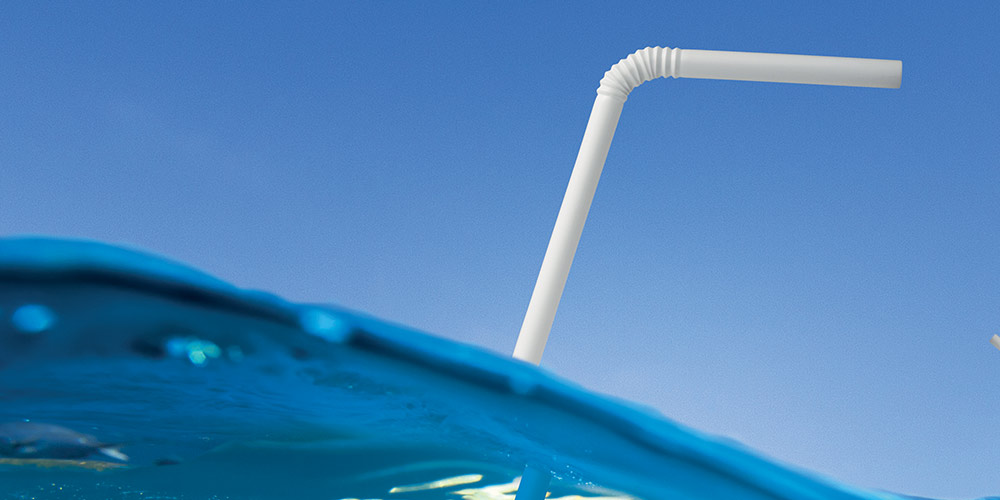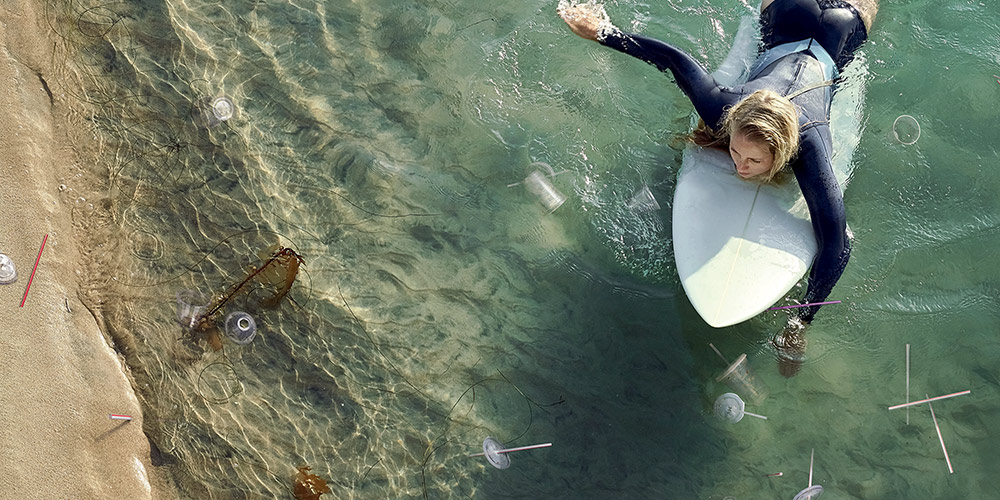It’s hot here in Central Texas. Like 100°F hot (about 38°C). And while we sweat our way between air-conditioned locations, we’ll probably grab an ice cold beverage. You have to stay hydrated after all.
And it’s a pretty good bet that drink will arrive with a plastic straw.

Straws with your iced coffee. Straws next to the drink machine. Straws with a glass of water at a restaurant. Straws straws straws. Every day in the United States we use an estimated 500 million single-use plastic straws. Let that sink in. Now imagine 127 school buses full of plastic straws. Or enough straws linked end-to-end to circle Earth 2.5 times. Every. Single. Day.
Do straws seem silly or insignificant?
Well, if you’ve ever seen the video of a four-inch section of straw being removed from an Olive Ridley sea turtle’s nostril in Costa Rica, you might think otherwise [warning: this video is beyond disturbing]. The straw wound up in the wrong place (the ocean) and was lodged in the turtle’s nose.
Why you are reading about straws
Single-use plastics (including straws, cutlery and containers) are contributing to the overall threat our oceans are facing. Every year, more than 8 million tons of plastic enter the seas. And no, this is not plastic that fell off a boat. It came from the land via river systems. It was carelessly littered, improperly disposed of, or escaped from our global waste management systems.
Dell first got involved in ocean-bound plastics because of our first social good advocate, actor, entrepreneur and UN Environment Goodwill Ambassador Adrian Grenier and the organization he co-founded, Lonely Whale. In addition to raising awareness about the issue, we collaborated to develop a packaging solution that could use these ocean plastics as a raw material – keeping them in the economy and out of the sea.
We launched that packaging in February 2017 and continue to work toward scaling its use as part of our commitment to circular design. We followed it up by helping create NextWave – a consortium of like-minded manufacturers, academics and nonprofits now led by Lonely Whale. The group is committed to building the first cross-industry, commercial-scale ocean-bound plastics supply chain. The group plans on diverting 3 million pounds of plastic from entering the ocean within the next five years – equivalent to keeping 66 million water bottles from washing out to sea.

Joining forces for a Strawless Ocean
Today (June 8), on World Oceans Day, I’m so excited that Dell is joining the global movement for a strawless ocean and pledging to eliminate the use of plastic straws across our global facilities by the end of the summer.
And what does that mean?
For context, Dell North America alone uses more than 50,000 plastic straws a month. They cannot be recycled, which means eliminating them will help us meet our 2020 Legacy of Good goal to reduce waste.
We are excited to work build on our work with Lonely Whale, the force behind For a Strawless Ocean, to make this transition. The effort will go into effect later this summer with a focus on removing them from our cafes, bistros and breakrooms beginning in the U.S. and expanding globally shortly thereafter. We will offer reusable alternative straws as give-aways and also offer them for purchase when the straws go away. We see this as a bold first step towards eliminating other single-use plastics across our entire operations.
What can you do?
For some people, this announcement may be the needed catalyst to support individual behavior change. If that’s you, let’s make this the summer without a straw. Skip your next plastic straw, and if someone brings a straw to you automatically, say “no thanks” (and then tell them why!). The world is waking up to the threats our oceans face and we hope other corporations will join us and take the pledge for a #StrawlessOcean.
So drink up, my friends, and please raise a glass to Dell and our decision to #StopSucking on single-use plastics. Tag @Dell4Good in your efforts and share your World Ocean Day pride.